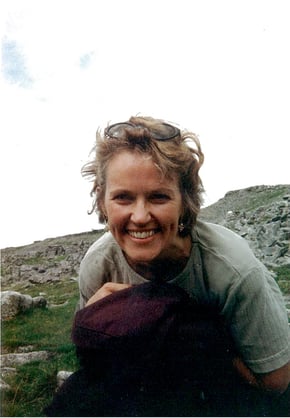The Catechism of the Catholic Church tells us that Advent is a time of “expectancy.” Our preparations are both remembering the “long preparation of Christ’s first coming” and looking forward to His second coming (CCC 524).
In fact, in one of his Advent sermons, St. John Henry Newman remarks that the habit of waiting and watching is one of the characteristics of the Christian. Often, however, Advent feels like a whirlwind of activity and distractions, rather than a time to prepare for the coming of Christ!
So What Should We Be Doing While Waiting?
Although not an “official” penitential season, usually Advent penances take on a more joyful character. They seem closer to the kinds of effort made prior to the arrival of a friend or honored guest: cleaning up the messy areas in our homes, making them as appealing as possible, etc. Think Advent wreaths, candles in the windows, and evergreen wreaths and trees—but more importantly, getting to confession and committing to minor penances to work loose the faults that have taken up residence.
Who is the World Waiting For?
In a general audience in 2006, Benedict XVI asked a poignant question and observed:
“Is the humanity of our time still waiting for a Savior? One has the feeling that many consider God as foreign to their own interests. Apparently, they do not need him. They live as though he did not exist and, worse still, as though he were an ‘obstacle’ to remove in order to fulfill themselves.” —Pope Benedict XVI
‘The People in Darkness Have Seen a Great Light.’
For the Christian, Advent is the time we are supposed to feel our need for Christ most deeply. Reflecting on how painful it can be to confront our weaknesses, a wise monk recently observed that the only thing we really own is our brokenness.
By deeply experiencing this brokenness, we come to know exactly how much we need Jesus. The closer we want to get to Christ, the more we need to be pruned and purged of sin and our attachment to sin.
So how are we doing? Have we been able to put up with unkindness or impatience in others; have we reacted badly to criticism, just or unjust; have we resolutely stuck to our minimally challenging Advent practices and resolutions? Have we loved our enemies—those who aren’t on the same side of an issue or political outlook—prayed for those who annoy us and tried to do good to those who dislike us or aren’t in our inner circle? (See Matthew 5:44.)
As we struggle to keep this penitential season, we could very easily feel discouraged by our failings. In a short advent reflection in a collection of Pastoral Sermons, Msgr. Ronald Knox reminds us:
“Those deep shadows which chequer the recesses of your conscience are proof that the light is still there… Perhaps there will always be shadows as well as light around the cave of Bethlehem.” —Msgr. Ronald Knox
Discovering the Light this Advent
Do we recognize our need for light? Pope Benedict XVI reminds us, almost as if in answer to the question he posed earlier:
“Only if people change will the world change; and in order to change, people need the light that comes from God, the light which so unexpectedly [on the night of Christmas] entered into our night.” — Homily at the Solemnity of the Nativity of the Lord, December 25, 2008
For change to happen, we need the light that comes from Christ. This prayer composed by St. Teresa of Calcutta can bring that light into your life even if the darkness seems overwhelming:
Dear Jesus,
I believe You are the Son of God and my Savior.
I need Your love to cleanse me from my mistakes and wrongdoings.
I need Your light to drive away all darkness.
I need Your peace to fill and satisfy my heart.
I now open the door of my heart and ask You to please come into my life,
(heal me), and give me Your gift of eternal life.
Amen.
May the rest of your Advent journey be blessed!
Read Also:
Advent: A Time for Choices, Change, and Even Happiness

